Financial inclusion is not only a tool to support social security, but also a foundation for inclusive socio -economic development. The central goal is to maximize access to and use of appropriate and safe financial products for all people, especially vulnerable groups, small businesses and individual business households.
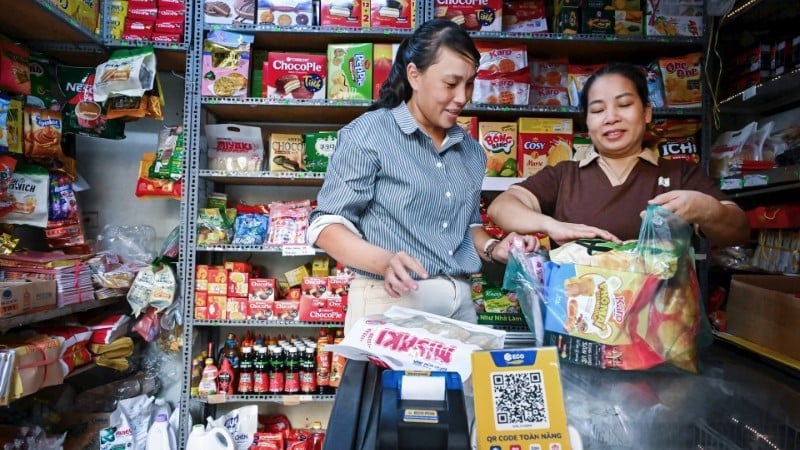
In fact, Vietnam currently has more than 5 million Household businesses contribute approximately 30% of GDP, creating more than 10 million jobs. This is also the issue that Resolution No. 68-NQ/TW, dated May 4, 2025, of the Politburo on private economic development clearly states: "Review and perfect the legal framework on individual businesses; minimize the gap, create all favorable conditions for management organization and financial and accounting regimes to encourage household businesses to transform into enterprises".
Support businesses to access Financial technology, transforming into a business model is one of the necessary solutions, which has been strongly implemented in the market in recent times. Thereby, contributing to promoting the private economy, improving competitiveness and creating a larger budget revenue. The important convergence point in Resolution No. 57/NQ-TW, Resolution No. 68/NQ-TW of the Politburo is the institutional breakthrough for innovation, eliminating prejudices about the private sector, strongly innovating thinking, creating a foundation to build trust, unleashing internal strength, ensuring all freedoms of business, fair competition, protecting the rights of entrepreneurs and business households.
In that context, financial inclusion is not only a tool to support social security, but also a foundation for inclusive socio-economic development. In Vietnam, the Government has proactively grasped the trend by cooperating with the World Bank (WB) to build a national strategy on financial inclusion. On January 22, 2020, the Prime Minister signed Decision No. 149/QD-TTg approving the National Financial Inclusion Strategy to 2025, with a vision to 2030 (Strategy). The core objective is to maximize access to and use of appropriate, safe, and affordable financial products for all people, especially vulnerable groups and small businesses. In the process of concretizing and putting mechanisms and policies from the Strategy into life, the fintech business community in Vietnam is one of the pioneering forces in flexibly applying the Party and State's policies and guidelines on comprehensive finance as well as private economic development.
According to Dr. Tran Van, Institute of Digital Economic Development Strategy (IDS), Vietnam is forming and developing a unique model for providing digital financial services. In this ecosystem, fintechs both support digital solutions for business households, small and micro enterprises, and provide modern financial services at reasonable costs and easy access.
However, IDS research results show that after more than 5 years of implementing the Strategy, many positive results have been recorded in terms of improvements in access to financial services. However, based on actual data from the WB and the State Bank, the IDS research team has pointed out an uneven picture of the current situation of access to financial services in Vietnam. Accordingly, the lowest income group of individuals only increased the rate of account ownership by about 6% after 5 years. The group of small, micro-sized enterprises and business households, although accounting for a large proportion of the economy, still face many barriers in accessing formal credit. The gap in access to financial services between income groups and business sizes is increasingly widening, in a direction more disadvantageous for the group of low-income individuals and the group of small, micro-sized enterprises.
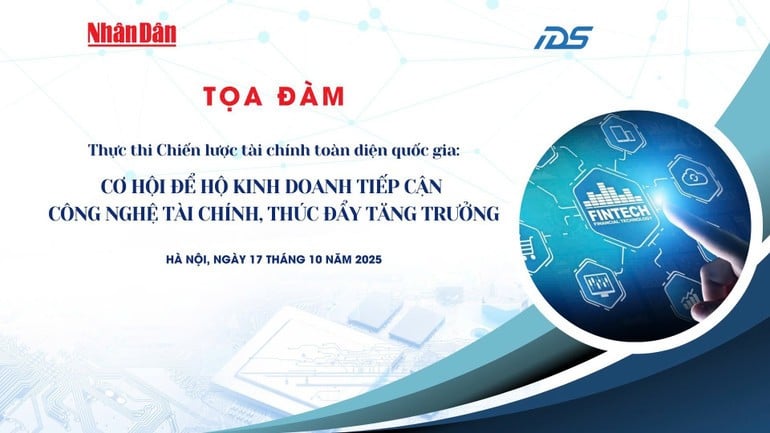
Open-mindedness drives digital transformation
According to researchers, Vietnam is among the countries that are slow to improve access to capital for small and medium-sized enterprises; the main and inherent reasons are that loans require collateral; high interest rates; and complicated procedures.
Exchanging opinions on this issue, Dr. Nguyen Duc Kien, Chairman of the IDS Scientific Council, Former Head of the Prime Minister's Economic Advisory Group, assessed that the initial achievements in implementing National Financial Inclusion Strategy This is thanks to the innovative thinking and open approach of policy-making and state management agencies.
“If we do not continue to have an open mind in building policies to promote digital transformation, the initial achievements will be pushed back,” Dr. Nguyen Duc Kien warned.
With the spirit of innovation, creativity, and people-centeredness, the national financial inclusion strategy is expected to become the "golden key" to help Vietnam firmly step on the path of sustainable development, becoming a model of digital transformation and financial inclusion in the region. In that context, to create an open forum to discuss opportunities for nearly 5 million business households, on October 17, 2025, at the headquarters at 71 Hang Trong, Nhan Dan Newspaper will coordinate with the IDS Institute to organize a discussion: "Implementing the national financial inclusion strategy - Opportunities for business households to access financial technology, promoting growth".
The seminar will have the presence of representatives of the Ministry of Industry and Trade, Ministry of Science and Technology, Ministry of Finance, State Bank of Vietnam, the National Assembly's Economic and Financial Committee, the National Assembly's Committee for Science, Technology and Environment, along with many economic and financial experts, representatives of the technology start-up business community, fintech businesses, domestic and international investors.
During the discussion session at the seminar, representatives of the National Assembly Committees, ministries, and economic experts shared more about the challenges and solutions to improve the policy environment for healthy and sustainable development of the digital financial services market, serving the effective implementation of the National Financial Inclusion Strategy in the next phase.
In particular, at the seminar, the IDS research team will introduce the monograph “Inclusive Finance: Driving Force for High Growth in the 2026-2045 Period”. This is a product written on the basis of collecting and distilling information from the scientific research topic “National Inclusive Finance Strategy: New Ways to Access Capital for Small, Micro and Household Enterprises in Vietnam” conducted by IDS.
"In January 2020, the Prime Minister signed Decision No. 149/QD-TTg approving the National Financial Inclusion Strategy to 2025, with a vision to 2030, with the key objective of maximizing access to and use of appropriate financial products for all people to contribute to rapid and sustainable growth. The Prime Minister's Economic Advisory Group during this period gathered experts, economists, and a number of businesses to conduct a preliminary assessment after three years of implementing the decision. The book presents survey data from 2015 to 2023 and measures directed by the Government, especially during the Covid-19 pandemic, to help Vietnam's economy avoid crisis, becoming one of the countries with fast growth, stable macro-economy, and people's lives are guaranteed during the world pandemic period. (Excerpt from the book introduction by Prime Minister Pham Minh Chinh) | |
Source: https://baolangson.vn/co-hoi-de-ho-kinh-doanh-tiep-can-cong-nghe-tai-chinh-thuc-day-tang-truong-5061999.html


![[Photo] General Secretary To Lam attends the 18th Hanoi Party Congress, term 2025-2030](https://vphoto.vietnam.vn/thumb/1200x675/vietnam/resource/IMAGE/2025/10/16/1760581023342_cover-0367-jpg.webp)
![[Photo] Nhan Dan Newspaper launches “Fatherland in the Heart: The Concert Film”](https://vphoto.vietnam.vn/thumb/1200x675/vietnam/resource/IMAGE/2025/10/16/1760622132545_thiet-ke-chua-co-ten-36-png.webp)




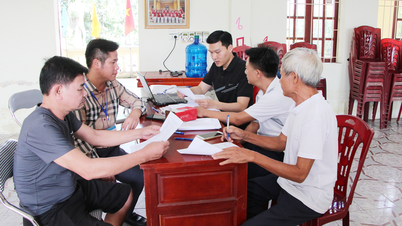





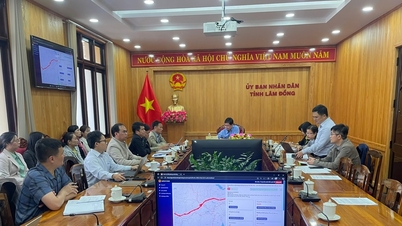

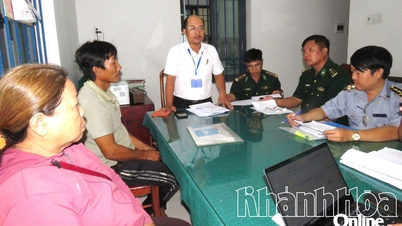







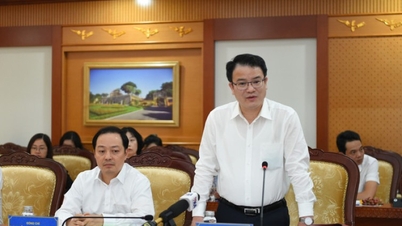











![[Video] TripAdvisor honors many famous attractions of Ninh Binh](https://vphoto.vietnam.vn/thumb/402x226/vietnam/resource/IMAGE/2025/10/16/1760574721908_vinh-danh-ninh-binh-7368-jpg.webp)




























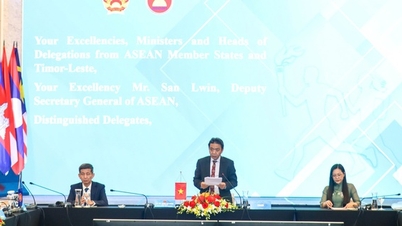

![[Photo] Nhan Dan Newspaper launches “Fatherland in the Heart: The Concert Film”](https://vphoto.vietnam.vn/thumb/402x226/vietnam/resource/IMAGE/2025/10/16/1760622132545_thiet-ke-chua-co-ten-36-png.webp)

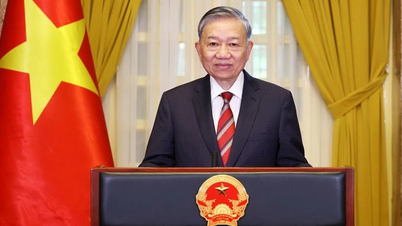









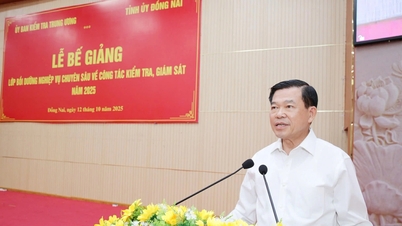























Comment (0)